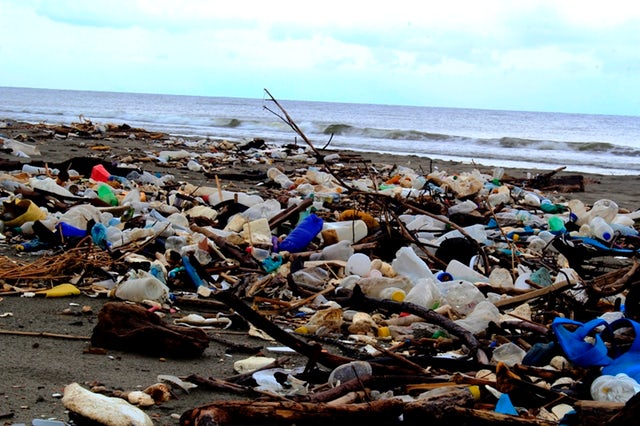Green Cameroon Commemorates World Wildlife Day 2019

On the 20th of December 2013, at its 68th session, the United Nations General Assembly (UNGA) decided to proclaim 3rd March the day for the adoption of the convention on international trade in endangered species of wild fauna and flora, as world wildlife day. This year march 3rd 2019, Green Cameroon together with other NGOs and stakeholders from the ministry of Environment, Nature protection and sustainable development joined the rest of the international community to commemorate the world wildlife day under the theme ‘life below water; for the benefit of man and the planet’ which aligns with goal 14 of UN Sustainable Development goals. In essence therefore, the focus was on marine wildlife.
A Part of the celebration wich took place at LDTV station Buea with a live broadcast, was based on wildlife protection for sustainable development. The program enlightened the public on the importance of marine wildlife, the threats to marine wildlife which is plastic pollution, and what can be done to conserve wildlife in a sustainable manner. It should be noted that this is the first wildlife day to be focused on life below water. It was a great opportunity for Green Cameroon to join other organisations to raise awareness on the importance of marine species to humans and how we can conserve it for posterity.
Oceans cover about 70% of the earth and support a variety of life forms, including the world’s largest mammal, the blue whale. The oceans are a significant source of oxygen for our planet and are instrumental in the capture of and storage of Carbondioxide. Marine species also provide significant ecosystem services such as food, medicine and livelihood. They are also vital for tourism and recreational activities.

Unfortunately, the existence of marine wildlife is under serious threats from the activities of man such as over fishing, intoxication of waters with harmful chemicals from industries, plastic pollution amongst others. There have been the destruction of marine habitat such as the Turtle, marine turtles depend on a variety of habitats at sea, as well as the all-important nesting beaches. Sadly, these beaches are under pressure to develop by the tourism industry making it difficult for turtles to breed. Ocean pollution is harming turtles and their habitat. Chemical pollution such as oil spills, can harm the turtles and contaminate their environment. Litter such as plastic bags pose a threat to baby turtles who mistake them for food like jellyfish. Turtles can’t digest plastics and this can harm them or even kill them.
To this effect, Green Cameroon together with other stakeholders involved in the protection of marine wildlife deemed it necessary to ensure that marine species are protected to ensure their survival and maintain the ecosystem services they provide. It is estimated that about 8 million tonnes of plastic enters the sea annually, and at this rate we face a future with more plastic in the future than fish by 2050.
Finally, Green Cameroon and other stakeholders recommended some measures to mitigate marine pollution and to sustainably conserve the marine ecosystem. Some of the recommendations included; personal responsibility in which we all need to take personal action and significantly limit our use of plastics and avoid diffusion of responsibilities ; Governments should incorporate education about plastic into their school curriculum; encouraging research and innovation ; recycling of waste especially plastics and to discourage single use plastics. With all these, the rate of degradation of the marine ecosystem will drastically reduce and hence sustainability.
Join Green Cameroon today to preserve and protect our environment especially the marine ecosystem because their future is our future.

